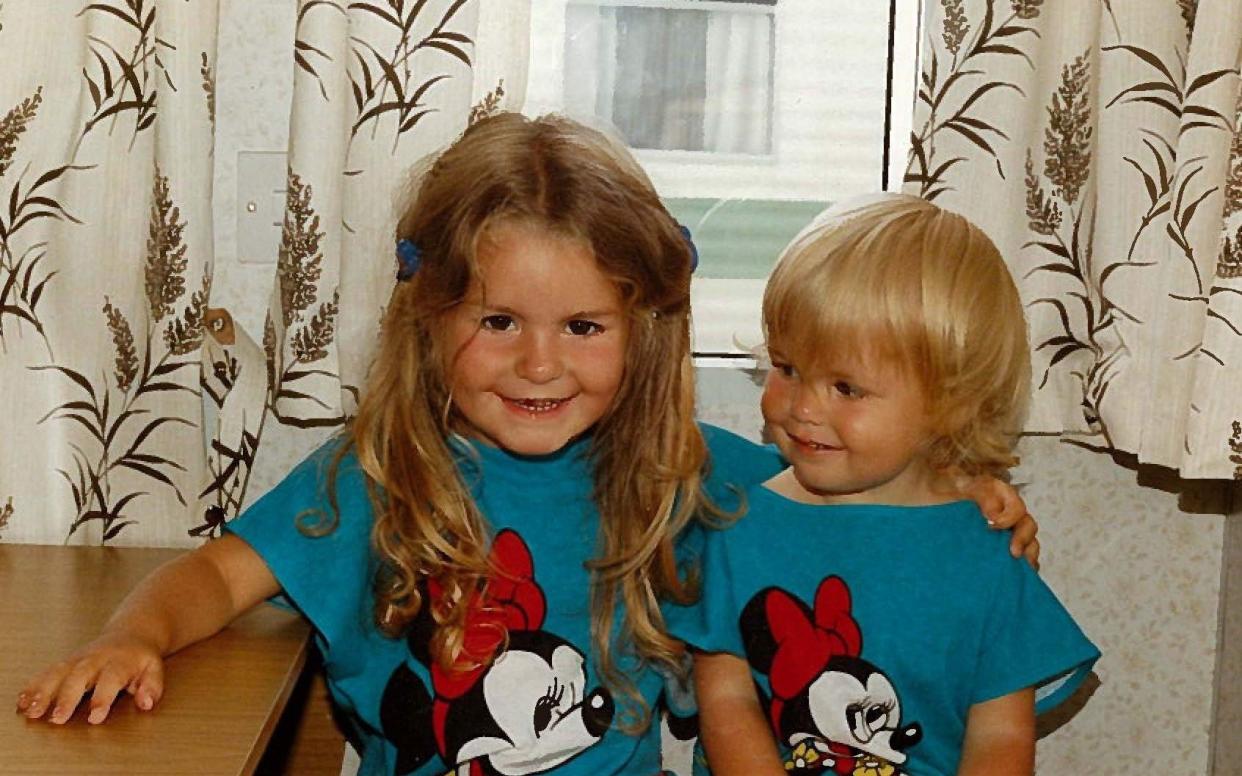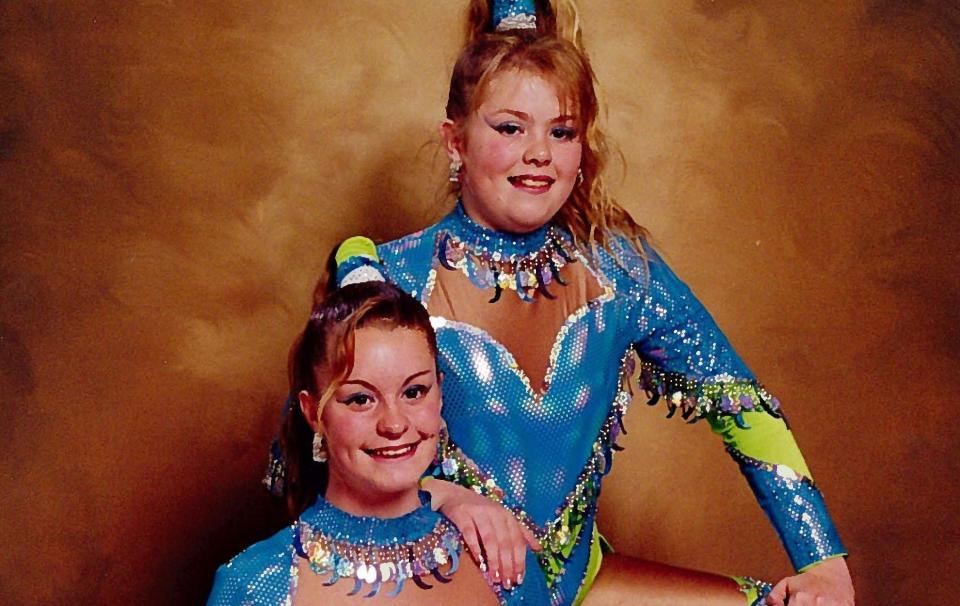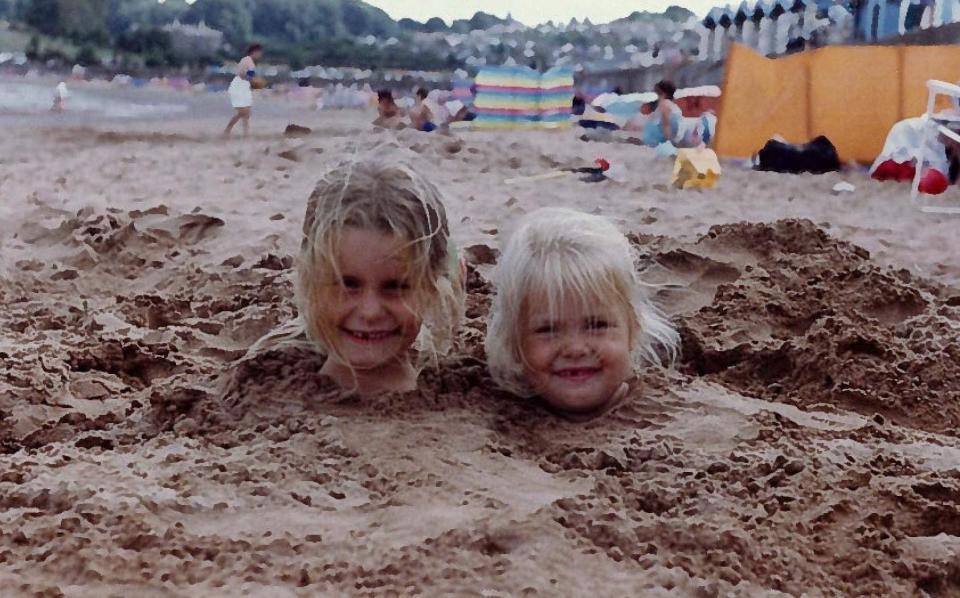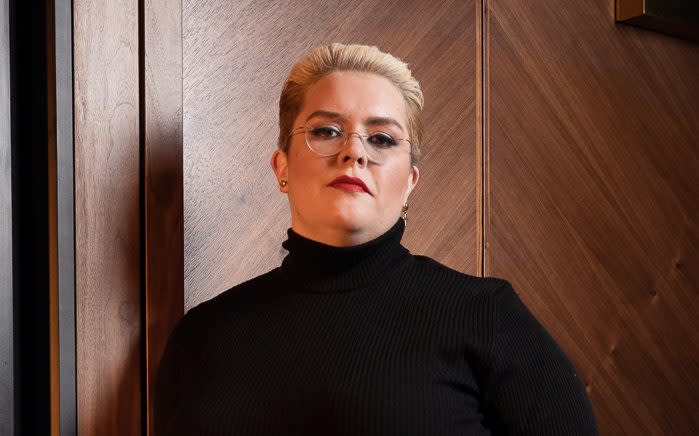‘My sister's death at 28 convinced me to overhaul my life’

Growing up, there was no one I idolised more than my older sister Jenna. She was the popular girl at school: pretty, confident, athletic and the most amazing dancer.
Being two years younger, I would have felt in her shadow had she not also been incredibly loyal and kind. Jenna was the type of sister who felt it was her duty to stick up for you, one time going as far as marching 15 of her friends two miles to tell off a girl who had been picking on me. She always went above and beyond for the people she loved.
In her late teens she started to get ill, but everything happened so steadily that we didn’t realise what was going on. At first, she was throwing up after every dance competition, which we put down to nerves.
Things got a little worse after she left home to study contemporary dance at the University of Chichester in 2002. She started complaining about headaches that were so bad that she had to sit out classes and eventually she missed so much teaching that she had to repeat her final year.
One day in 2005, when I was in my second year of university in Glamorgan, I got a call from our older brother. He told me that Jenna was staying at home in Bristol and had woken our parents up at six o’clock in the morning saying she felt really unwell. Dad told her to go back to bed until the walk-in health centre was open but she was insistent: something just felt really wrong and they had to go right now.
She was, tragically, right, and had a seizure in the car on the way to the clinic. She was rushed to the hospital where they diagnosed her with an astrocytoma: a malignant brain tumour which has a very low chance of survival. She was just 22.

Our whole family was in shock. We had no family history and Jenna was otherwise a fit and healthy person, but this type of brain tumour is just completely random and can affect anyone. It didn't make any sense, but it felt even more unlikely that this could happen to someone as vibrant and fun as Jenna.
I rushed to the hospital, where the whole family had gathered around her bed. Everyone was ashen-faced, just trying to take in the news. Everyone, that is, except for Jenna, who grabbed my hand, and said: “Can you make everyone laugh because they’re doing my nut in looking like that.”
It was so unexpected that I laughed. But that comment planted a seed in my mind: what better thing is there in life than comedy? A laugh is a glimmer of light in the darkest of times.
We focused on her treatment plan, hoping that there was some way Jenna's life could be extended. She had an operation to remove just under half of the tumour, but unfortunately it took part of her brain with it. After that she had radiotherapy, which she found very difficult and it caused her to lose her hair.
Throughout it all, she inspired me with her sense of humour. The first time I went to see her after radiotherapy, I texted her beforehand asking if she could wear her wig at first to ease me into it. I was worried that her bare head would just be a very vivid reminder of how ill she was, so she agreed. But when she opened the door, she stood there bold as brass with her bald head out. I yelped with shock and she just laughed.
Later on, as she got more ill, she seemed to fade a little bit. She was exhausted from the treatment so she became less and less sociable and, because of all the interference with her brain, we noticed subtle changes to her personality.

Amazingly, in the years after her diagnosis, she met a man, got married and moved to Portsmouth to live near his children from a previous relationship. Even though she wasn’t able to achieve her dreams of becoming a dance teacher, our family was so pleased that she had been able to meet other life milestones.
As Jenna was becoming more ill, I got into my stride. I graduated and got bookings for quirky fringe events and festivals. I kept talking to Jenna about the idea of becoming a stand-up and she completely backed me, giving me the most brilliant piece of advice: “When people ask what you do, just say you’re a comedian.”
It worked a treat. I actually started getting booked for little bits and pieces, without having any real experience. Jenna was thrilled, but there was something about it that made me feel a bit odd. I was used to idolising her, but since getting ill she was now doing the same to me.
At the end of 2010, I moved to London and started to get a bit of work at cabaret events as an Adele impersonator. By April 2011, I was really finding my feet in comedy and had my first-ever solo gig. I went out to celebrate afterwards, but woke up late the next morning to see Mum had sent me the text I’d always dreaded receiving, asking me to come home and say goodbye to Jenna. She was just 28 when she died.

The two or three months after her death were a period of incredibly intense grief, where I felt like I just couldn’t do anything at all. After that, I forced myself to get back to work, knowing that that’s what she would have wanted. For about three years, I was in a horrible depression where I felt completely dead inside, but on the outside I was functioning.
I was just thinking that I now had to live my life not just for me, but for Jenna. I wanted to do everything that she wasn’t able to do and make her proud. My career went from strength to strength: I won several big awards, played to big crowds at the Edinburgh Fringe and got bookings on the BBC and Channel 4. Work helped my family keep going, too. Mum has raised around £13,000 for the Brain Tumour Support charity and running fundraising balls.
A sense of humour really kept all of us going over the last decade. Even in the worst of times during lockdown, I looked around those four walls of my flat and just thought “Well, I’ve had worse” and laughed.
As told to Helen Chandler-Wilde

